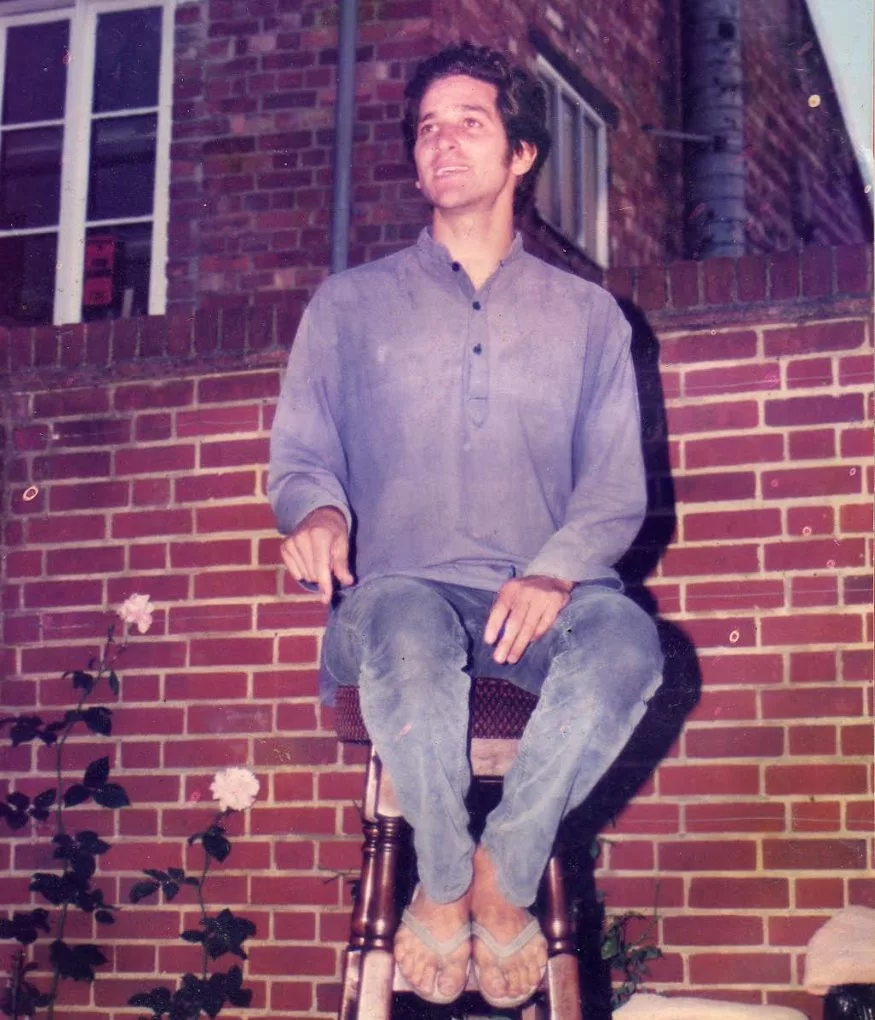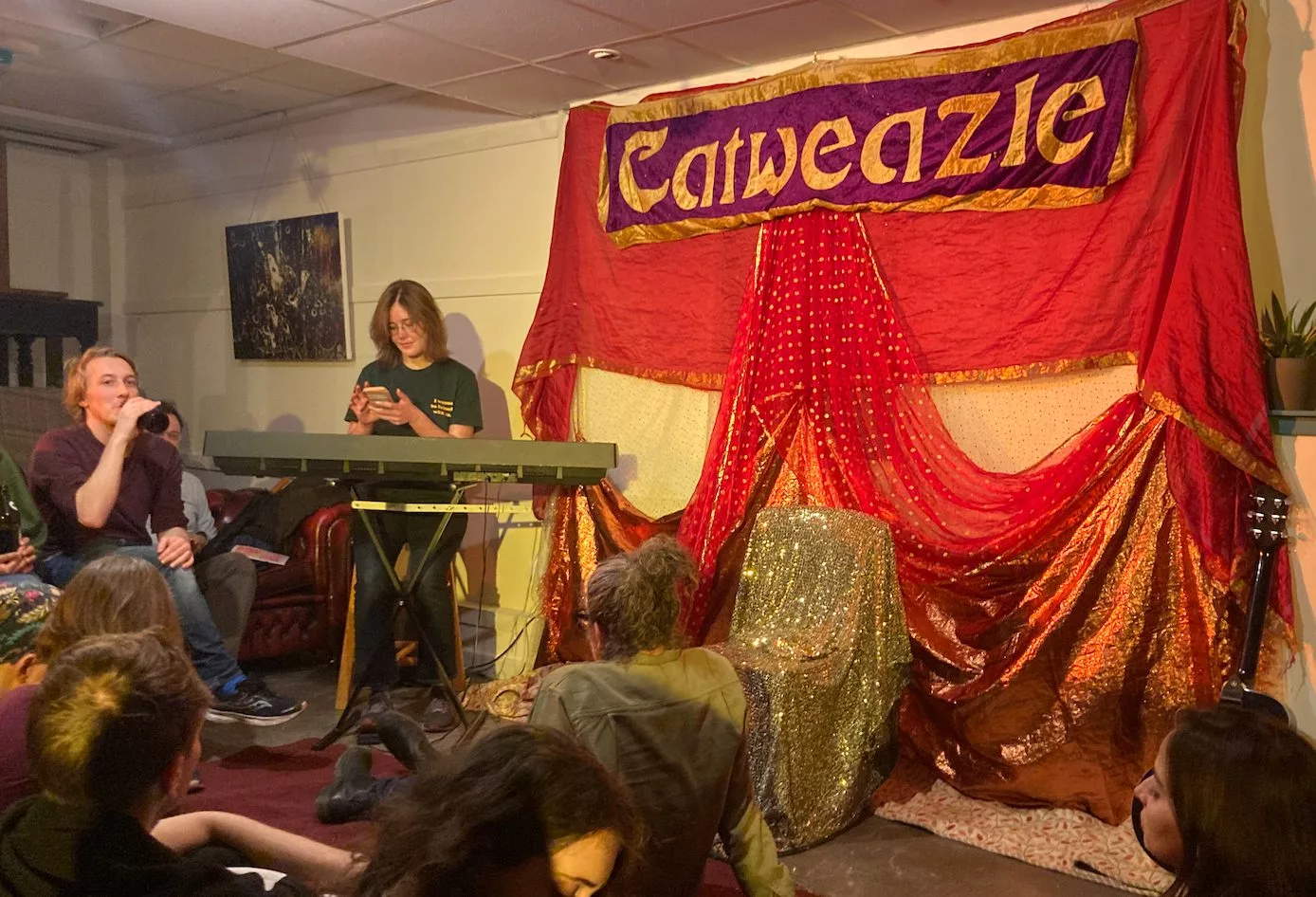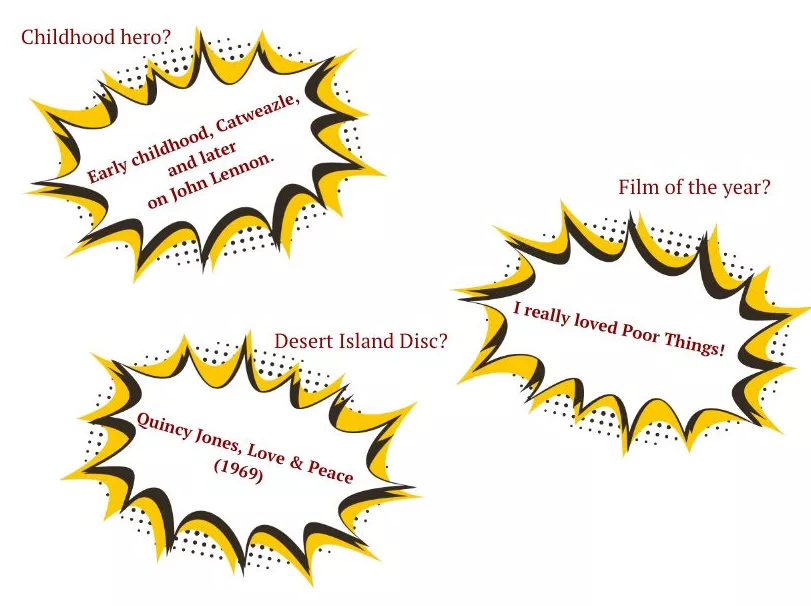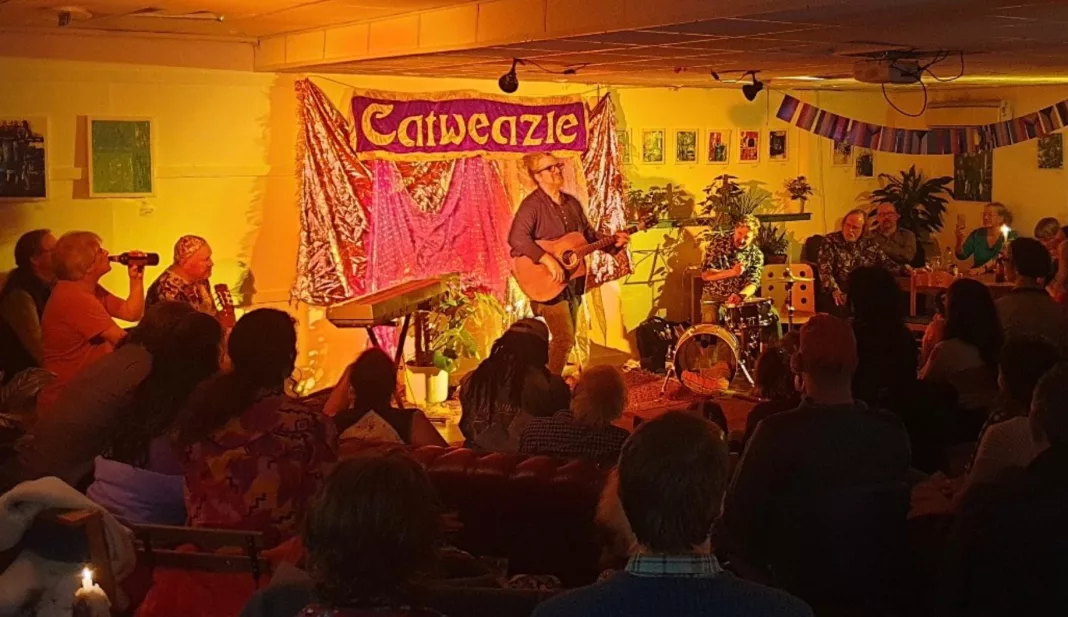“It’ll be a fucking feast,” Mother Catweazle declares. Strapping in for the second Catweazle Club of February, Common Ground is abuzz with anticipation.
Streams of poets, singer-songwriters, comics; the old, the young, regulars, first-timers, locals, tourists, academics, troubadours, expectant mothers, mingling singles, loved-up couples, going-on-20-years marriages – had queued to sign up for the opportunity to perform at the oldest (and best?) open unplugged-mic night in Oxford. The sari brandishing ‘Catweazle’ as a halo for performers has been hanging since 1994: the Club turns 30 this year.
I went along and met Mother Catweazle, founder and performer, Matt Sage to talk all things open mic.
The start of the meeting (an understatement for what the evening was) was marked by the metamorphosis of chatter into a hum harmonised with troubadour-turned-emcee Matt’s keyboard chord. We were humming, making collective music, but it felt as if everyone – and Common Ground on Little Clarendon Street must be able to squeeze in at least 70 people – was intently, whole-heartedly listening to Matt’s folk routine. He called it an “experiment” but each Club commences in this way. I suppose everything, though, is a bit of an experiment at Catweazle.
But in cobweb-ridden, creaky, conventional Oxford, Matt “was amazed to discover that there was no kind of open mic or communal performing scene of any kind. In 1994, it was all about Radiohead and Supergrass and being cool and getting signed. Within 3 weeks of being here, I realised that if I wanted to find a home, I’d just have to build one myself.”
The open mic club was born out of that experimental ethos. Its fledgling ceremony, Matt writes, came “in the early Autumn of 1994. I was a musician and moved down from London and on to a boat on the Oxford Canal, in search of some peace and quiet. In those days I had been part of a very nurturing scene based at the Troubadour in Earl’s Court, where every week a dizzying array of talented musicians and poets would congregate from all corners of London. Regulars would turn up religiously every single week; it was such an inspiring environment.”

It might take guts to seat yourself on the glittering deity throne of Catweazle. Up close, you can see the pieces of paper bearing scrawled poems and song lyrics trembling in the hands of their performers. But, out of (30 years’ worth of) regularity, comes comfort. And people have made homes with Catweazle. On the door, Matt has enlisted the help of a fifteen-years-long attendee. She tells me that tonight, she will sing about “a great social and political issue: providing ketamine for horses.” Even horses have got to feel at home.
The Catweazle Club’s first home in 1994 was the Victoria Arms – my apologies, the Vicky Arms – in Jericho; it relocated to Cowley Road and now takes place in Common Ground. Why Oxford? “It’s just where I happened to end up, but there is something about the scale and also the transience of the population that seems to suit it well. I also love Oxford. It is a deeply magical and lyrical place, and I feel that both myself and The Catweazle Club are now a part of that lineage.”
Hopping around, though, is part of Catweazle’s essence. Matt continues, “The Club is itself something of a nomadic troubadour, and we have been in many different venues over the past three decades: the body may change, but the spirit lives on. We feel very at home at Common Ground. There are so few places to hang out in Oxford; we are lucky to have this one.”
One performer, Samantha Twigg Johnson, had returned to the stage after a years-long hiatus. Her first attendance was as plus-one to an Oxford academic in the noughties. At this Catweazle, she was, as her song invoked, a “maple seed making her way to the ground”. It certainly didn’t matter whether or not you had heard the song before as the Club became a battalion of voices for the song’s refrain.
As for town and gown, Matt says “I think there are way too few occasions or events or spaces where town and gown can come together and share an experience as equals, but Catweazle is definitely one of them.”
You may or may not return with an academic on your arm but “to my mind, this landscape has remained exactly the same for the past thirty years, and no doubt for the one thousand before that. But I’m very happy that we have managed to create something that transcends those boundaries. I love the generational blend of the event.”
Even the Club’s namesake is all about tying up loops of time. “In the 70s, there was a tv show about a fictional 11th-century wizard – Catweazle – whose spells never worked, and who, in order to get away from the Normans who were hunting him, somehow accidentally magicked himself forwards in time to what was then contemporary rural Kent, where he couldn’t understand anything whatsoever about the modern world in which he suddenly found himself.” And then Matt prophesied: “as a five year old, similarly stranded and bewildered in suburbia, I massively identified with him. When looking for a name for the space I wanted to create, ‘Catweazle’ was the natural choice.”
The Club does seem to have a sort of trippy effect. You spend time at Catweazle and suddenly you can “remember from the age of five being at family weddings or events, and always being completely awestruck by the band (who were probably pretty dicey), but a five year old doesn’t necessarily differentiate – just gets wowed by the instruments and the lights and the music coming together out of nowhere.”
Matt spends the first few minutes of Catweazle daring us to be the first to sit on the carpet at the front where, in his words, “vibrations are most potent, omniscient even”. He told me that “it is such a privilege to sit at the feet of someone who is conjuring up the Magi, here in the moment, in front of my very eyes and ears. I think we’ve become a little numb to that in some ways, getting our hit vicariously through TV or the internet, or gigs being so big that you’re miles from the stage. Up front in a packed, intimate environment, it’s actually pretty bloody magical, this live artistic performance thing.”

After more than 1500 Catweazles, Matt will have seen unending cycles of students and locals. Sure, the audience has been big but the Club never fails in stitching a tight knit.
“I think one of the key aspects that makes this such a unique space is the intimacy we have always enjoyed there. We purposely refrain from using a PA system, because the connection that the listening quality provides is what makes Catweazle so often so magical. I happen to believe that the Art of Listening is an artform as highly prized as any other. So that when we come together, we are all artists, be it musician, poet, storyteller or listener. Keeping it small is the key to all that. With a roster of around 20 performers in an evening (of an invariably high standard), for audiences it will always be a very inspiring and uplifting night out.
We are still here today because it satisfies a fundamental need in the people who come. It’s not just about entertainment (although it clearly is entertaining); it’s more about connection. Catweazle is the very antithesis of the entirely soulless TV talent competition culture which has become the mainstream norm.
People crave something more authentic, more vulnerable, more human and engaging. These are the spaces in which we get to really meet ourselves, not via some shiny showbiz-porn platform. I think we are able to create a very sharing and uplifting environment and in my experience people get a really good hit from it, myself included. It’s not for everyone, but it serves very well its own quiet and unique little niche.”
I must say, there was nothing ‘quiet’ about Catweazle. One person did a full-bodied knee slap timed with a howl of a laugh at a stand-up bit. There was always attentive, thoughtful listening – the silence of the enraptured, the thrumming feet of a Dylan-esque, anti-work number, and murmurs of awe at a poet speaking through a stammer.
Pretty. Bloody. Magical.
Picture this – a day in Autumn ‘94: “20 of us gathered in the snug of the Vicky Arms in Jericho and took turns to read a poem or sing a song, while everyone else took turns to listen. At the end of a deeply delightful evening, we all agreed to come back the following week. And here we still are, some 1,500 weeks later!”

With thanks to Matt Sage for this interview.
Catweazle meets again on March 7.


